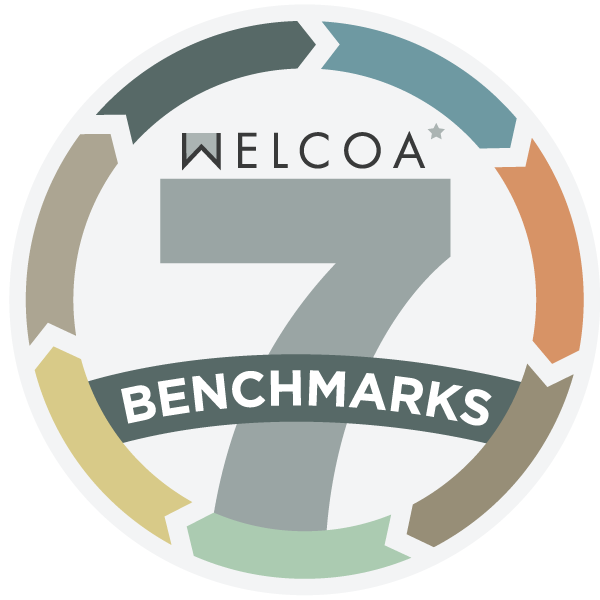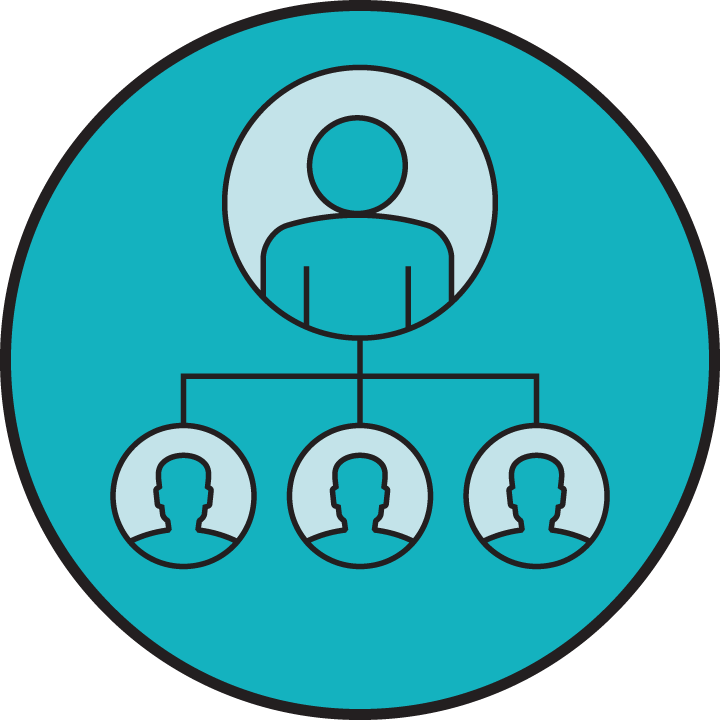
These 7 Benchmarks are an important part of building a results-oriented workplace wellness program. By using this information in your organization or with your clients, you can provide a credible framework which can be tailored toward organization specific values, mission, vision and goals for wellness. Organizations that are dedicated to the health of their employees are given a structure to help their organizations through the Well Workplace process.
Our toolkits combine webinars, expert interviews, sample templates, and more that will help guide you through WELCOA’s 7 Benchmark process. Building a credible framework can be difficult—we’re here to help—map out your results-oriented, worksite wellness program using these fundamental resources.

Committed and Aligned Leadership
Having leaders throughout the organization that are deeply committed to the wellness of employees and wellness in their own lives is an important first step to creating successful worksite wellness initiatives.
Benchmark 1 Toolkit
Collaboration in Support of Wellness
Creating a formal or informal team that is dedicated to building and sustaining a successful worksite wellness initiative is an important step. This engages stakeholders at all levels and helps maintain a cooperative approach to worksite wellness initiatives.
Benchmark 2 Toolkit
Collecting Meaningful Data to Evolve a Wellness Strategy
Efforts to support employee wellness involve understanding employee populations and assessing the current state through confidential and secure data collection. Data collection should measure what matters most to both the organization and the employees.
Benchmark 3 Toolkit
Crafting an
Operating Plan
Capturing an organization’s goals for wellness initiatives and documenting the details will serve as a roadmap to guide efforts and investments in workplace wellness. The wellness operating plan reflects the vision, values and purpose of an organization.
Benchmark 4 Toolkit
Choosing Initiatives that Support the Whole Employee
Selecting appropriate health and wellness interventions based on data collected serves to enhance decision-making skills. It brings the right intervention to an organization in support of employees across the health continuum toward healthy and thriving lives.
Benchmark 5 Toolkit
Cultivate Supportive Health Promoting Environments, Policies, and Practices
Supporting efforts toward healthy employees includes evaluating policies, practices and promotions to ensure the environment helps foster a successful wellness initiative. It is grounded in the core vision and purpose of the organization. Aim to align the wellness culture throughout the organization so there is consistency within resources, interventions and the experience at work.
Benchmark 6 Toolkit
Conduct Evaluation, Communicate, Celebrate, and Iterate
Each organization strives to develop an understanding of the impact of efforts to support employee wellness. Data collected during evaluation will determine how successful the approach has been and in what ways it can be improved. It also reflects how findings from the evaluation are communicated to ensure continuous improvement efforts in worksite wellness initiatives.
Benchmark 7 Toolkit